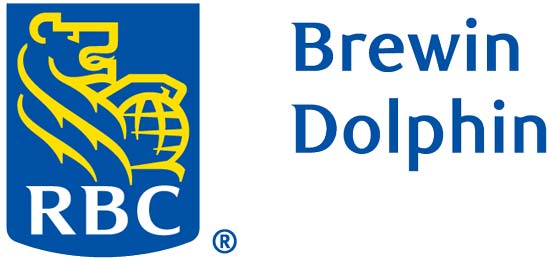This month:
Expert investment views:
A combination of attractive valuations and macroeconomic tailwinds are cited in favour of European investment opportunities
One wealth manager extols the attractions of certain government bonds, but urges careful consideration of nations’ long-term finances
Defensive sectors are put under the microscope, with a comparison between equities and fixed income opportunities
Featuring this month’s experts:


1. Unveiling Europe's hidden potential
In a world of ever-changing markets and global dynamics, recent economic challenges, geopolitical uncertainties, and the cyclical nature of the European economy, have understandably raised investor caution.
Rightly so, as the European stock market has noticeably lagged its US counterpart over the past decade. Factors such as the conflict in Ukraine, slowing economic growth, and a rapidly changing political landscape have contributed to investors’ apprehension.
While Europe may have fallen out of favour, the combination of appealing relative valuations and an improving macroeconomic landscape sets the stage for potential investment opportunities
However, it is important to recognise that Europe’s investment landscape is not solely a tale of caution. Amid a year-long manufacturing downturn, early signs of stabilisation have emerged as inventories depleted, and Chinese imports show signs of recovery. Furthermore, a drop in headline Eurozone inflation from 4.3% in September to 2.9% in October suggests that additional interest rate hikes by the European Central Bank are unlikely i. This eases the financial burden on European households and breathes new life into the economy.
European companies now present historically attractive opportunities, trading below their long-term average valuations and at an impressive 30% discount compared to the US market.
While Europe may have fallen out of favour, the combination of appealing relative valuations and an improving macroeconomic landscape sets the stage for potential investment opportunities. It is a reminder that beneath the challenges, Europe’s hidden potential remains a compelling story for investors.

Colin MacKenzie
Director, Investment Management at Arbuthnot Latham & Co., Limited
2. Where next for interest rates?
Most investors expect interest rates will fall from their current levels and stay low over the coming years. The question is how much they will fall and over how many months. It seems likely that markets were too aggressive in expecting interest rates to decline.
The improved long-term interest rates that markets are increasingly offering are becoming more enticing. In stark contrast to recent years, the UK inflation-linked bond market now offers guaranteed returns above inflation and, like most UK government bonds, careful selection can offer great tax efficiency (depending upon circumstances).
The long-term outlook for the public finances of countries everywhere requires some hard choices. Elections taking place in the UK and US will bring into sharp focus the willingness of potential leaders to take those choices
While very long-term interest rates also now offer higher yields, this part of the market requires care. The long-term outlook for the public finances of countries everywhere requires some hard choices. Elections taking place in the UK and US will bring into sharp focus the willingness of potential leaders to take those choices. After the UK’s brush with bond market Armageddon in 2022, neither main political party is likely to seek election based on promises of big net increases in spending.
In the US, however, if the election is contested between Biden and Trump, it is hard to imagine either of them promising to restore fiscal balance. That role seems to fall to Congress, which has proven capable of restricting some spending by threatening to force the government into default (and later shutdown) at various times this year. The shape of Congress after the 2024 election will determine how fiscally responsible the next president ends up being.

Guy Foster
Chief Strategist at RBC Brewin Dolphin

Top Tip

Lee Goggin
Co-Founder
3. Are classical defensive sectors doing their job?
Giving tight monetary policy, elevated inflation and heightened geopolitical risks, one would assume that equity investors would have been right to pivot their portfolio towards the so-called defensive sectors. These sectors tend to focus on expenditure that are less discretionary in nature and fulfil a need, rather than a want. The industries that make this broad category include Utilities, Consumer Staples and Healthcare. So far this year, the bellwether S&P 500 (market weighted) index has returned 14.8%ii versus a decline of 5.1%, 6.5% and 12.9% for Consumer staples, Healthcare and Utilities subsectors respectively. Clearly adopting a strategy on focussing equity exposure on expenditure that is not cyclical has not paid off so far. So why have these lagged the index by such a large quantum?
It is important to note the overall breadth of the market has been narrow. Headlines focus on the equities dubbed the magnificent seven iii, as the buzz around AI seems to have captured everyone’s imagination. The basket of these seven stocks on an equally weighted basis has returned a staggering 91% year to date (YTD). By contrast, the equally weight S&P 500 index has delivered flat returns year to date.
While the predictability of the defensive sectors is highly desirable, Utilities tend to run their businesses with sizeable debt. As interest rates have risen substantially, they will need to use more of their earnings to service the increased interest costs
While the predictability of the defensive sectors is highly desirable, Utilities tend to run their businesses with sizeable debt. As interest rates have risen substantially, they will need to use more of their earnings to service the increased interest costs. Furthermore, rising interest rates reduces the price investors are willing to pay for these companies’ earnings (P/E ratio). Currently with longer-dated utility bonds yielding between 6 and 7%, this equates to a rough P/E multiple of 15 and is below the average 18 level that investors were willing to pay over the past ten years. As such, defensive sectors are competing with the alternatives available in bonds.

Jeremy Sterngold
Deputy Chief Investment Officer at LGT Wealth Management
ii up to the close at the 9th of November
iii These companies are Meta (parent of Facebook and Instagram), Microsoft, Apple, Amazon, Alphabet (parent of Google and YouTube), Tesla and Nvidia
Important information
The investment strategy and financial planning explanations of this piece are for informational purposes only, may represent only one view, and are not intended in any way as financial or investment advice. Any comment on specific securities should not be interpreted as investment research or advice, solicitation or recommendations to buy or sell a particular security.
We always advise consultation with a professional before making any investment and financial planning decisions.
Always remember that investing involves risk and the value of investments may fall as well as rise. Past performance should not be seen as a guarantee of future returns.


